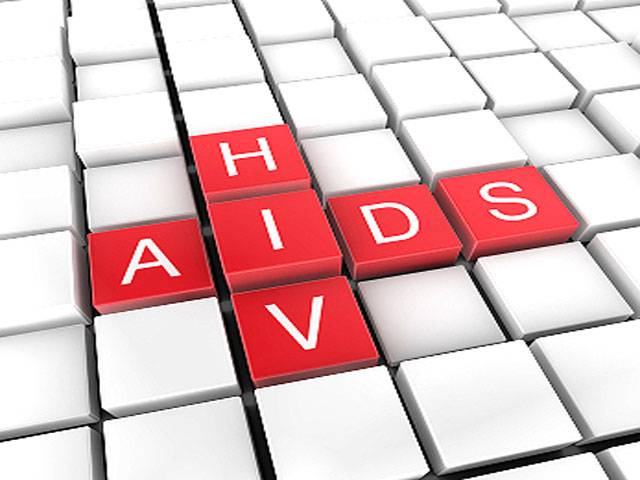“Everybody knows that pestilences have a way of recurring in the world; yet somehow we find it hard to believe in ones that crash down on our heads from a blue sky.” - Albert Camus, “The Plague”
A memory from the AIDS crisis. It was 2005, the year that global AIDS deaths peaked at 2.3 million. At the end of a dirt road in Kericho, Kenya, I visited Sister Placida, an energetic nun caring for a few dozen equally energetic AIDS orphans. She showed me several “memory boxes” that dying mothers had prepared for their children, holding photos, letters, a few mementos. The exercise struck me as forlorn - a short life poured into a shoebox - but also as defiant. Facing an absurd death sentence, these women wanted to be recalled not as victims but as humans. They wanted to leave a mark, to make a statement: Once there was such a life as mine.
As the International AIDS conference meets in Washington, DC, the news on HIV/AIDS is not all encouraging. About 44 per cent of people needing treatment still lack it. AIDS remains the world’s leading cause of death for women of reproductive age.
And yet: 8 million people in lower-income countries are now on AIDS medication. This includes 6.2 million in sub-Saharan Africa - more than a hundredfold increase in less than a decade.
How to comprehend such figures? An economist might calculate the productivity contained in more than 10 million cumulative life-years saved in the developing world by antiretroviral drugs since 1996. Not being an economist, I imagine millions of unfilled memory boxes. A lost generation, unexpectedly returned. A found generation.
In America, it is common to distrust institutions - to express a lack of confidence in Congress, the federal government and major companies. The response to AIDS weighs on the other side of the balance.
It has brought great credit to the scientific enterprise, which first helped allay unreasoned fears, then guided evidence-based treatment and prevention. It has illustrated the power of government to do good in ways denied to individuals and private groups. Public agencies - particularly the President’s Emergency Plan for AIDS Relief (PEPFAR) - met ambitious treatment goals, and on budget. The response to HIV/AIDS has been a reminder: The quest of politics is not big government or small government but effective government on the necessary scale.
The entities and individuals deserving a share of credit in the AIDS movement are marvellously diverse. Gay men in New York and San Francisco who refused to pass away in silence. Pharmaceutical companies that developed tests and antiretroviral drugs. Members of Congress from both parties who appropriated money to save lives outside their districts, outside their experience, outside their country. Taxpayers who paid the bills. Billionaire philanthropists, irritatingly persistent rock stars, nuns in Kericho. What other social movement, in its hall of fame, would need to reserve places for Gay Men’s Health Crisis and for George W. Bush, the author of PEPFAR?
And for Africans as well, who saw the world crash down on their heads from a blue sky. Heads of state who pulled together national plans. Families who routinely took in the children of the dead. A man named Moses, in a shack in Kampala, who proudly showed me his pink adherence book, with its careful checks each day for the pills he took.
There are criticisms to be made in the global response to AIDS - failures of empathy, policy and urgency - but the sum is an anecdote to cynicism. And it has brought the world to the verge of a previously unimaginable prospect. The next generation of AIDS prevention - including male circumcision, early treatment to reduce infectiousness and drugs to stop mother-to-child transmission - holds the promise of dramatically reducing new infections.
Turning efficacy in medical trials into effectiveness in the field is the hardest part of public health, because the only thing more complicated than the structure of the AIDS virus is human behaviour. Bending the curve of new infections downward will require sustained political will and serious resources. But such a struggle is no longer inconceivable. There is now a precedent of defiance, idealism and success. “What’s true of all the evils in the world,” wrote Camus, “is true of the plague as well. It helps men to rise above themselves. All the same, when you see the misery it brings, you’d need to be a madman, or a coward, or stone blind, to give in tamely to the plague.” We didn’t and we won’t. –Washington Post
Friday, April 19, 2024
The found generation of the HIV/AIDS epidemic

9:58 PM | April 18, 2024
King Charles's cancer ‘eating him alive,' monarch unable to perform duties: Insider
1:02 AM | April 19, 2024
Mehwish Hayat says she would like to work with Aamir Khan
9:59 PM | April 18, 2024
What caused record-breaking rainfall in UAE?
9:58 PM | April 18, 2024
Donald Trump discusses Ukraine, Middle East, NATO with Polish President Duda
9:57 PM | April 18, 2024
'That'll be awesome,' Rohit Sharma on idea of Pakistan vs India Test series
9:17 PM | April 18, 2024
Hepatitis Challenge
April 18, 2024
IMF Predictions
April 18, 2024
Wheat War
April 18, 2024
Rail Revival
April 17, 2024
Addressing Climate Change
April 17, 2024
Justice denied
April 18, 2024
AI dilemmas unveiled
April 18, 2024
Tax tangle
April 18, 2024
Workforce inequality
April 17, 2024
New partnerships
April 17, 2024
ePaper - Nawaiwaqt
Advertisement
Nawaiwaqt Group | Copyright © 2024





